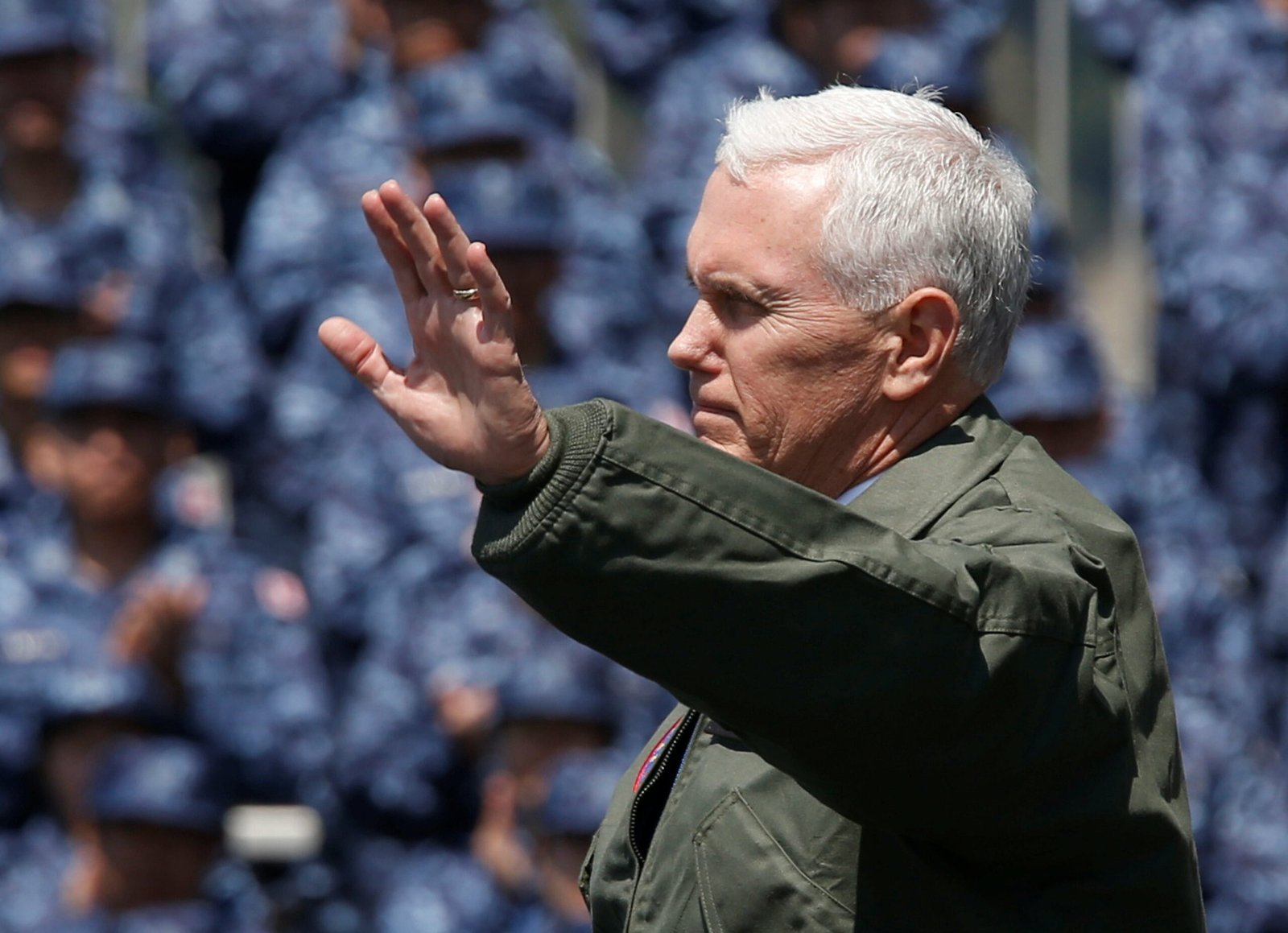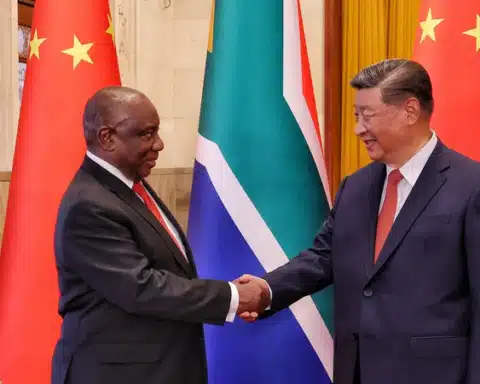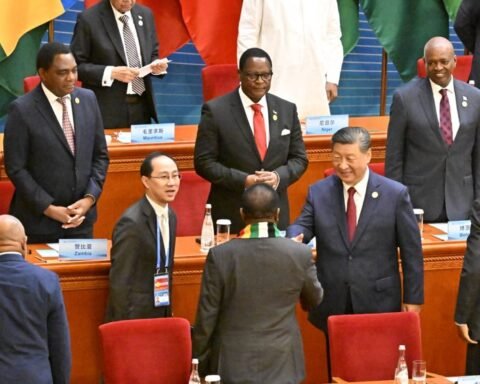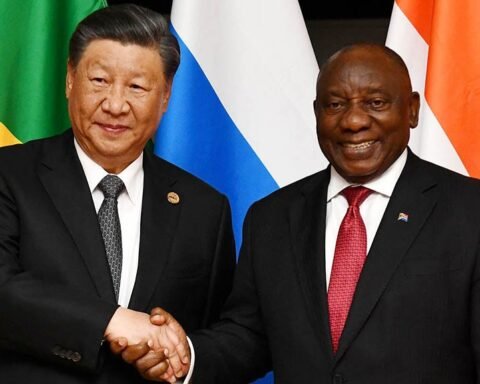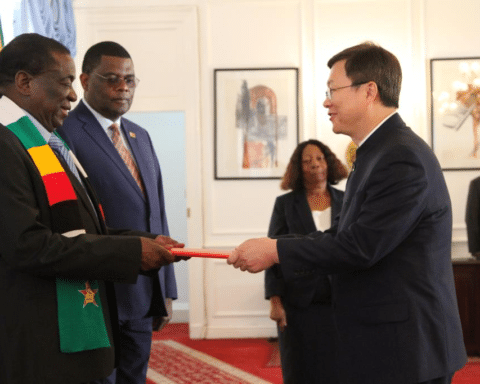Denuclearisation of the Korean peninsula can still be achieved peacefully because of Washington’s new engagement with China, U.S. Vice President Mike Pence said on Saturday, despite growing fears North Korea could soon conduct a new nuclear test.
South Korea is on heightened alert ahead of another important anniversary in the reclusive North that could be the trigger for a new nuclear test or launch of ballistic missiles, with a large concentration of military hardware massed on both sides of the border.
Tensions have risen sharply in recent months after Pyongyang conducted two nuclear weapons tests last year and carried out a steady stream of ballistic missile tests in defiance of United Nations resolutions and sanctions.
U.S. President Donald Trump has vowed to prevent North Korea from being able to hit the United States with a nuclear missile but his deputy said in Sydney on Saturday a peaceful outcome was still achievable because of warming ties between Beijing and Washington.
“We truly believe that, as our allies in the region and China bring that pressure to bear, there is a chance that we can achieve a historic objective of a nuclear-free Korea peninsula by peaceful means,” Pence said.
“We are encouraged by the steps that China has taken so far,” he said at a joint news conference with Australian Prime Minister Malcolm Turnbull.
Earlier this week, Trump praised Chinese efforts to rein in “the menace of North Korea” after North Korean state media warned the United States of a “super-mighty preemptive strike”.
Trump hosted Chinese President Xi Jinping at his resort in Florida earlier this month and, while taking a hard line with North Korea, has focussed his efforts on trying to convince China to put more pressure on its ally and neighbour.
However, Trump has also ordered what he has described as an “armada” to waters off the Korean peninsula as a warning to North Korea. There was some confusion about the whereabouts of the USS Carl Vinson aircraft carrier strike group earlier this week.
PILOT EJECTS
While it was thought the carrier group had been steaming towards the Korean peninsula, it had in fact been completing a training exercise with the Australian navy.
Pence said the carrier group was now expected to be in waters off the Korean peninsula before the end of the month, “within days”.
On Friday, the U.S. Navy said a pilot from the USS Carl Vinson had ejected safely while conducting a routine flight south of the Philippines.
It said the incident occurred as the F/A-18E was on a final approach to the carrier. The pilot was recovered by helicopter without injury. The statement did not say when the incident occurred.
In the face of the U.S. moves, North Korea said on Friday the state of affairs on the Korean peninsula was “extremely perilous”.
The North will celebrate the 85th anniversary of the foundation of its Korean People’s Army on Tuesday and has marked important events in the past by launching missiles or conducting nuclear tests.
Tuesday’s anniversary also comes as the North finishes winter military drills and as South Korea and the United States wrap up annual joint military exercises.
South Korea’s Unification Ministry spokesman Lee Duk-haeng said on Friday all those military exercises meant there was a lot of military equipment gathered in North Korea, as well as the South.
Satellite imagery analysed by 38 North, a Washington-based North Korea monitoring project, found some activity under way at North Korea’s Punggye-ri nuclear test site, but the group said it was unclear whether the site was in a “tactical pause” before another test or was carrying out normal operations.
U.S. officials have also said there was an increased level of activity by Chinese bombers, signalling a possible heightened state of readiness. Russian media has denied reports Moscow was building up its forces near the Korean border.
China’s Defence Ministry, however, said its forces were maintaining normal combat preparedness.
North Korea remained defiant.
(Additional reporting by Ju-min Park in SEOUL, Ben Blanchard on BEIJING, Phil Stewart in WASHINGTON, and Polina Devitt in MOSCOW; Writing by Paul Tait; Editing by Jacqueline Wong)
